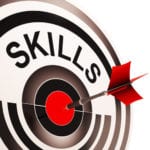 The size, structure, skills and expertise of an Intelligent Client Function (ICF) team will depend upon the nature and scale of the supplier relationship, the business outcomes to be achieved and the criticality of the service being delivered. As services are added or removed to/from the supplier, the shape of ICF team, its expertise and the skills required, will also usually have to change to maintain optimum effectiveness. However, we have found there are eight key areas common to all successful ICF teams.
The size, structure, skills and expertise of an Intelligent Client Function (ICF) team will depend upon the nature and scale of the supplier relationship, the business outcomes to be achieved and the criticality of the service being delivered. As services are added or removed to/from the supplier, the shape of ICF team, its expertise and the skills required, will also usually have to change to maintain optimum effectiveness. However, we have found there are eight key areas common to all successful ICF teams.
Reflecting on our own experience of more than 500 complex strategic supplier relationships/projects, the best ICF teams operate well with their strategic service providers and help them to have their voice heard with senior executives to help drive innovation. The very best teams also play an important role in keeping their suppliers in line in terms of their behaviours and contractual responsibilities.
What we have found makes the most effective ICF teams – those that can squeeze the most value from these complex relationships – is a complete understanding of:
- The operational aspects of the business, organisation or department that has the service being outsourced or commissioned – whether that is HR, ICT, Finance, Procurement or Legal, to name a few.
- The business outcomes your organisation is aiming to achieve from the outsourced service.
- How the relationship’s contract terms and schedules align to those business outcomes, and which do not.
- The ‘expert responsibilities’ of the supplier and how they impact on the terms of your contract.
- How the on-the-ground behaviours of both the supplier and the client undermine or support business outcomes and the written contract terms.
- Any relevant procurement or operational legislation (Financial Services Sector) and EU procurement regulations (although we are no longer part of the EU, large parts of the EU procurement regulations still apply for UK public sector bodies).
- Change management methodologies, cultural change and structures incorporated in the transformation.
- Trust building and relationship management
We have found that the above knowledge and skills, when included in ICF teams, drive excellent value, help to keep suppliers ‘honest’ and reduce manipulative behaviours on both sides, because early intervention and technical competence are able to rapidly come into play when misunderstandings crop up.
Want to Learn More About ICF Teams?
Find out how we can help you build an Intelligent Client Function and develop a commercial mindset that helps you drive maximum value from your strategic supplier relationships. Explore the links in this page to learn more about the skills and knowledge required for a successful ICF team.
Have Your Questions Answered
Do you have a question you’d like answering? Simply send your question to advice@bestpracticegroup.com and entitle your email ‘FAQ’. We’ll respond to you directly and post the answer to your question to our FAQ pages.

